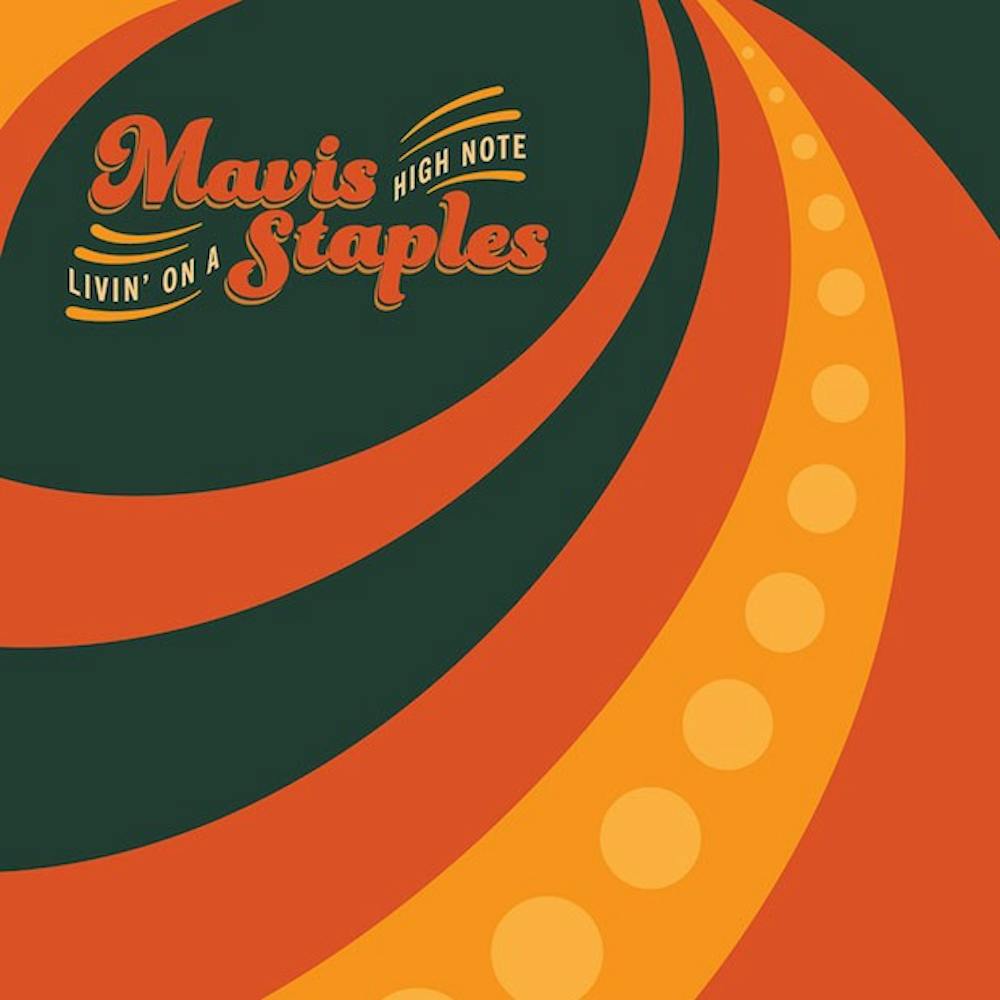Mavis Staples took to the Paramount Theater’s stage last weekend to perform in Charlottesville for the first time. The 76-year-old artist has more pep in her step, enthusiasm for music and passion for change than most young people.
Opening act The Record Company, a young rock trio, was warmly welcomed by the predominantly middle-aged audience, despite their clearly contrasting style to the main act. Overall, lead singer Chris Vos’s mixture of Gavin Degraw- and Marc Broussard-esque vocals and lap steel guitar playing proved entertaining, but at times, the bass’s abrasive volume made it difficult to understand lyrics or feel at ease.
Vos, a self-proclaimed “lifelong fan of the Staples,” said the band “drove 12 hours to be here because we wanted to play this show so bad.” He expressed tremendous gratitude for the audience’s appreciation and paved the way for Ms. Staples.
The dedicated fans who nearly filled the seats welcomed Staples with a standing ovation. Gliding across the stage to join her five-member band, Staples looked overjoyed. This was the band’s first time in Charlottesville, and she quickly established a rapport with all, playfully questioning, “What took y’all so long? It’s 2016!”
She used her bold humor to continuously joke about her age, mentioning how each song on her new album, “High Note,” was written by a different songwriter, all of whom are young. She described the new album as one to “[make] you wanna get up in the morning, raise your window up and talk to your neighbor,” and called for a return to days past, when individuals would greet their neighbors and strangers.
To someone unfamiliar with her music or her family’s legacy, it would seem inconceivable for this spunky, firecracker of an artist to be a septuagenarian. Staples swung her hips and moved her arms to the beat of her songs, using her energy to produce the same guttural, powerful vocals she has offered for over five decades.
Early in the set, Staples sang “March on Freedom Highway,” a song “Pop Staples wrote … in 1962 for the march from Selma to Montgomery, Alabama.” Her voice echoed in the velvet-lined theater as she bellowed, “I was there and I’m still here. I’m a living witness and I’m still fighting. I’m a soldier… I’m in the army of love. I’m fighting every day.”
While these lyrics clearly applied to the ongoing fight for racial equality in America, Staples called for social change across the board. From minor loneliness to heartbreak and persecution, she covered issues large and small, sure to reach audience members in some way.
At the root of Staples’s music is her sincere kindness, passion for what she does and desire to keep doing it until she is no longer able. Through songs like “I’ll Take You There” and “For What It’s Worth,” a Buffalo Springfield song Staples covered, Staples is akin to a gospel reverend, making listeners believe in the existence of a place where “ain’t nobody cryin’, ain’t nobody worried.”
If listeners were to go home with any sentiment other than appreciation for this musical legend, it would be with regret over not having had the opportunity to see her in her heyday or witness her entire journey. Staples is still producing songs of which her father would have been proud. The same tunes she heard while “cornbread and collard greens” cooked in her Mississippi kitchen in the sixties are relevant to listeners in 2016, and will continue to provide solace and motivation to fans well into the future.





